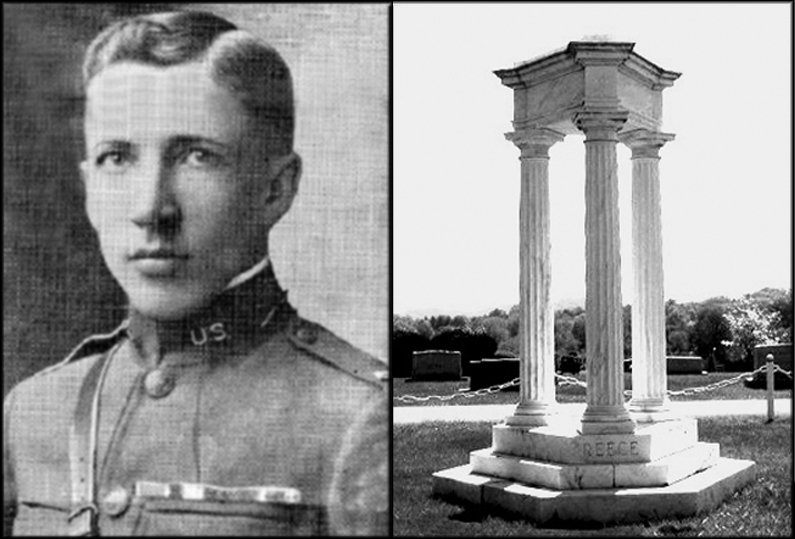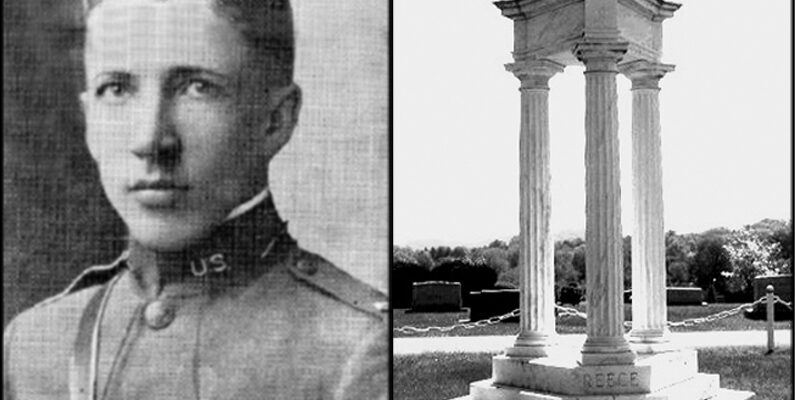In the spring of 1946, Republican legislators were lining up behind Representative B. (Brazilla) Carroll Reece of Tennessee to succeed Herbert Brownell Jr. as GOP National Committee chairman. Mr. Reece, 56 year-old representative from the Volunteer State's 1st Congressional District, if selected, was eager to resign from Congress and take over the party chairmanship on a full-time basis.
The National Committee, of which Mr. Reece was a veteran member, met on April 1 of that year to pick a successor to Brownell. GOP leaders in Congress reportedly settled on Mr. Reece after the leading contender, a representative from Ohio, took himself out of consideration.
Mr. Reece, a banker, lawyer, educator and highly-decorated World War I veteran, had served in Congress since 1921. Republican colleagues regarded him as a “middle of the road” man not particularly identified with the political camp of any party, thus being potentially satisfactory to all factions.
When Mrs. Louise Reece was asked if she thought her husband was dynamic enough to hold the job, she smiled and responded: “He keeps his dynamite well concealed. You should see him in an emergency or when he is provoked. A man can't have a war record like my husband's and not be dynamic.” The new chairman had volunteered for World War I, entering the service as a private and departing as a battalion commander.
His decorations included the Distinguished Service Cross, Distinguished Service Medal and the Purple Heart. In addition, he received the French Croix de Guerre with Palm and was cited for bravery by several Allied generals. Before he entered the GOP chairmanship, few persons in Washington knew very much about him.

According to Reece's critics, the chairman's record in Congress had been unspectacular; his voting branded him an isolationist. He voted against reciprocal trade agreements, lend-lease, amendments to the Wagner Labor Act and for anti-strike and anti-racketeer bills, which were directed against unions.
On the other hand, Reece's supporters noted that he had shown liberal tendencies in voting for abolishing the poll tax, anti-lynch legislation and signed the petition favoring the FEPC (Fair Employment Practices Commission). He regarded himself as an independent thinker. What Reece lacked in outward appearance was complemented by his wife who mere than filled the void.
Louise admitted that politics has been in her family for a long time. She was the daughter of Sen. Guy Goff from West Virginia and granddaughter of the man who was often called the idol of the Republican Party in that state, former Judge Nathan Goff. While Reece was going about his quiet business in Congress, his wife kept things running smoothly back in Johnson City. This resulted in his having the longest tenure in the history of that district. He was first sent to Congress in 1930.
The new chairman was skillful at soothing ruffled feelings. Once, at a meeting of Republicans in Chicago, one member of the group offered a resolution and insisted on presenting it in person at the next meeting of the National Committee. Hot words were exchanged accusing the guilty one of wanting to usurp the conversation.
Reece, acting as chairman, said the whole situation reminded him of this story: “A group of preachers were sitting around discussing which preacher they like to listen to best. The last to speak his mind said, 'Well, when I'm going good and warmed up, I believe I enjoy listening to myself best.” This caused the group to laugh, thereby causing the tense situation to be ironed out.
A good friend of Reece's from the Tennessee Legislature has these positive words to say about the politician: “Carroll never meets a stranger. As soon as he says 'hello' to anybody, that person is his friend.”
When Reece passed away in March 1961, his wife was elected to serve the remainder of his term in Congress. Both are buried at Monte Vista Memorial Park in Johnson City.
www.bcyesteryear.com

Comments are closed.